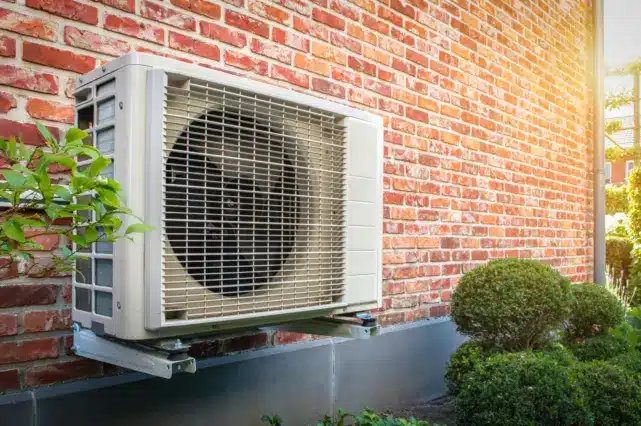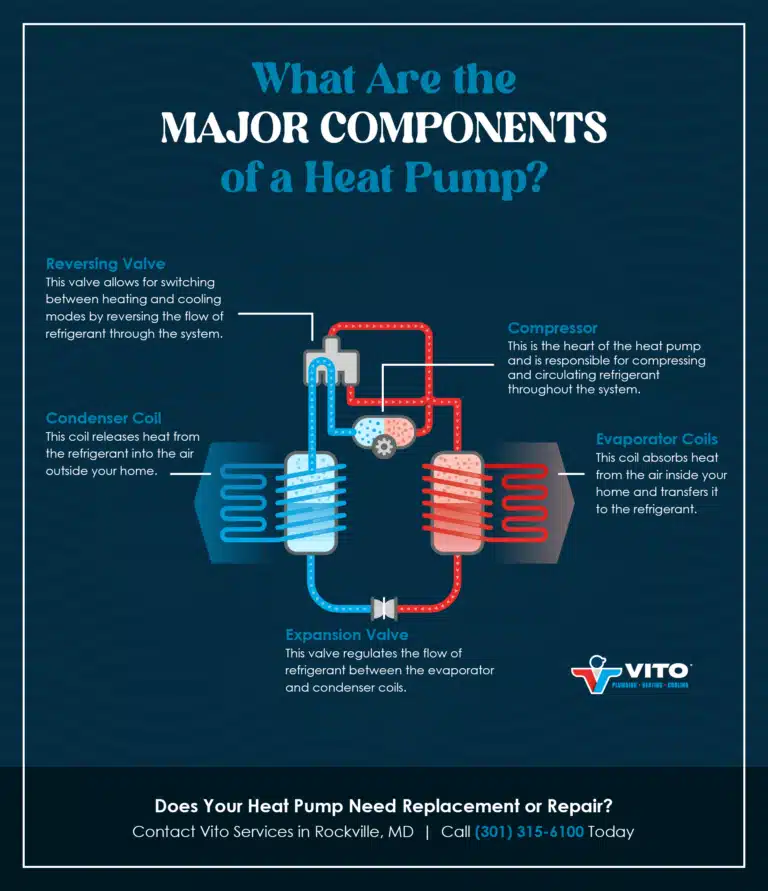
HOW DO HEAT PUMPS WORK?
Heat pumps differ from traditional HVAC units in the way they operate. A heat pump transfers heat from one area to another. In the summer, a heat pump absorbs heat from inside your home and transfers it outside via refrigerant. Air is heated or cooled depending on the temperature of the refrigerant.
Heat pumps use less energy than traditional heating systems, as they transfer heat rather than generate it. This means that they can provide the same amount of heat while using less energy, resulting in lower energy bills and reduced environmental impact.

THINGS THAT CAN GO WRONG WITH A HEAT PUMP
Although having a heat pump installed is an efficient way to heat and cool a home, there are some potential problems you can run into with your heat pump:
Frozen coils: If the outdoor temperature drops too low, the coils on the outdoor unit can freeze up, preventing the system from working properly. A lack of maintenance or improper installation can contribute to this issue occurring when it's particularly cold outside.
Low refrigerant levels: Heat pumps rely on refrigerant to transfer heat from one area to another. If the refrigerant levels are too low, it can cause the system to run inefficiently or not at all. This could be due to a leak in the system or an incorrect charge of refrigerant during installation.
Clogged filters: The filters in your heat pump should be changed or cleaned regularly in order to keep it running efficiently and prevent dust and debris from clogging up the system. If these filters become clogged, it can cause poor air flow and reduce efficiency of the system.
Electrical problems: Heat pumps require electricity in order to operate properly, so any electrical problems can cause issues with your system. This could include faulty wiring, tripped breakers, or other electrical issues that need to be addressed by a professional electrician.
MAINTAINING YOUR HEAT PUMP
Regular maintenance of your heat pump can extend the life of the system and prevent interruptions and breakdowns. It also helps to ensure the system is providing adequate heating and cooling for your home.
Change the air filter regularly: The air filter in your heat pump should be changed every one to three months, depending on the type of filter and how often you use your system.
Clean the outdoor unit: The outdoor unit of your heat pump should be cleaned at least once a year to remove dirt, leaves, and other debris that can accumulate over time.
Check for refrigerant leaks: Refrigerant leaks can cause your heat pump to run inefficiently and cause your energy bills to skyrocket. Have a professional check for any leaks and repair them as soon as possible if you see dramatic fluctuations in your utilities without changes to your heating and cooling habits.
Inspect the ductwork: If you have a ducted heat pump, make sure that all the ducts in your home are properly sealed and insulated to ensure that your heat pump is running efficiently.
Schedule regular maintenance: Have a professional inspect and service your heat pump at least once a year to ensure that it is running properly and efficiently.
ARE YOU LOOKING TO REPLACE OR REPAIR YOUR HEAT PUMP?
If you're looking to have a new energy-efficient heat pump installed or your current heat pump needs repairs, contact Vito Services for help. You may also want to consider signing up for the Vito VIP Club, where you can get worry-free routine maintenance as a perk of membership.
Our skilled technicians can provide you with the best service and quality work. To schedule an appointment, call (301) 315-6100 or send us a message.








